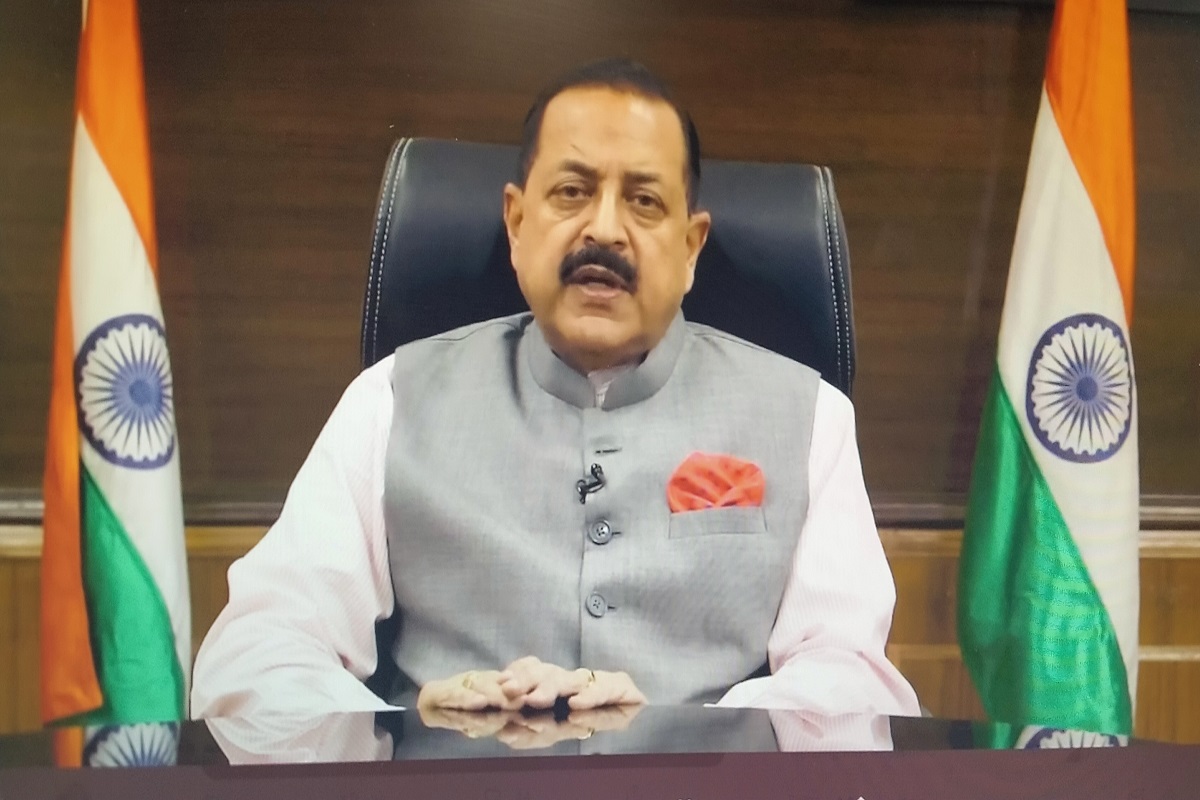India would also deploy and use Drone-based Observation Technology in a big way for strengthening the localized forecasting, besides adopting the High-Resolution Models, said the Union Minister for Earth Science Jitendra Singh here on Friday.
The Minister said India has already taken a lead in Asian Continent to provide Weather and Climate services to South Asian, South-East Asian and Middle East countries. Interacting with a galaxy of Leaders, Administrators, Scientists and Scholars on the Foundation Day of India Meteorological Department, he said India has been providing severe weather forecasting to many countries since 2016 and proved handy to countries like Nepal and Bangladesh in fighting severe climatic disasters.
Referring to the SAARC Satellite launched by the Indian Space Research Organization, he said India has reoriented its weather and climate services in the most modern way to cater to global needs.
The Ministry further emphasized that the language used in forecast and information would be made easy to understand and serve as a clear basis for taking action by every citizen. Government is Committed to make the India Meteorological Department a World-Class Organization for better delivery of services enabling a common man to take weather-wise and climate-smart decisions.
He said weather forecasting has helped five main sectors mainly Agriculture, Health, Water, Energy and Disaster management. On the Occasion of the Foundation Day of the IMD, the Minister dedicated to the Nation four Doppler Weather Radars at Leh, Mumbai, Delhi and Chennai for better research and operational analysis.
He said with these Doppler radars, IMD’s network has reached up to 33. This would further strengthen data synchronization through its integration with satellites, radars, computers, advanc models and human resources. The Minister said that augmentation of modern observing platforms such as Automatic weather stations, Doppler Weather Radars and Meteorological Satellites would help in further improving weather and climate services.
Referring to about 20-40% improvement in accuracy of severe weather warnings by IMD in recent five years as compared to previous five years, the Minister said the forecast of high temperature and heat wave conditions well in advance resulted in significant reduction in the number of deaths due to heat waves in subsequent years.
The IMD has also taken up upgradation and digitisation of several of its services and the results are evident in the form of near-accurate forecasts in short time range, advance prediction of cyclones and their tracks, expansion of sector-specific weather services to agriculture, water, health, power, energy, mining, disaster risk reduction and many other areas, the Minister said.











